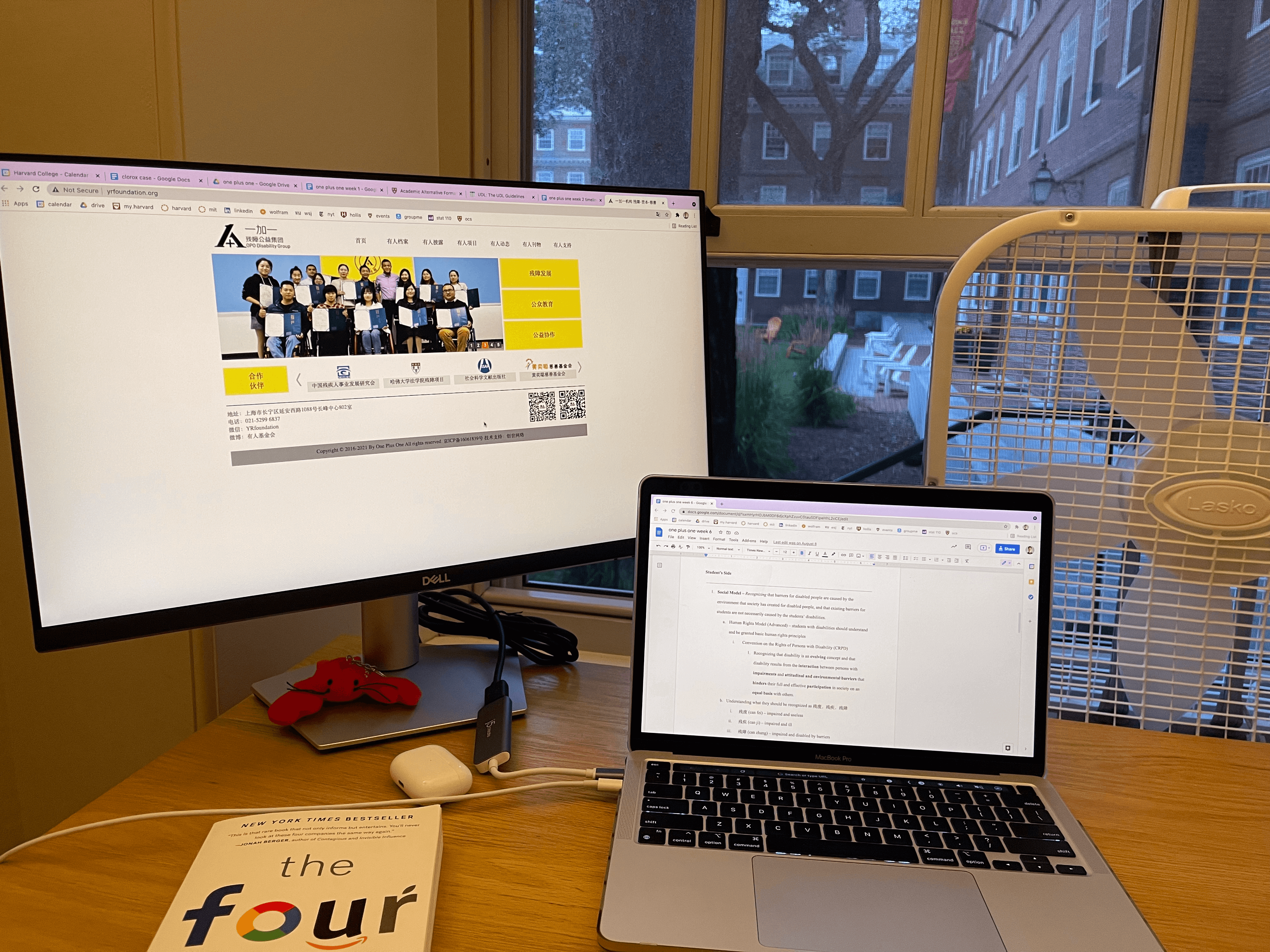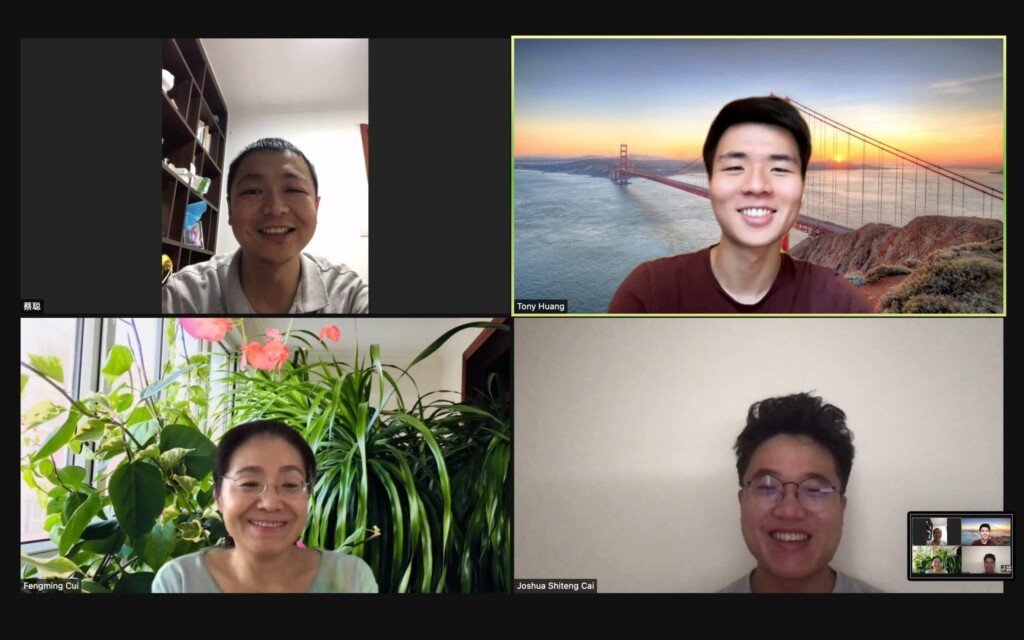This past summer, I experienced tremendous personal growth during my first-ever (remote) internship for the One Plus One Group for Disability, a non-profit persons with disabilities organization that focuses on disability rights, inclusion, and equal participation of persons with disabilities. As someone who had never experienced the hardships of a disabled individual, I feared that my implicit bias would prevent me from successfully fulfilling my role as a research assistant. I was worried.

However, much of this mindset changed – for the better – throughout my internship. From the very beginning, Dr. Fengming Cui and Cong Cai welcomed me with open arms. (On the other side of the screen, of course.) Together with my mentors and a fellow intern, we targeted the intersection between visual impairment disabilities and inclusive education in China.
Throughout the course of nine weeks, I relied on advice from my mentors and Google (my best friend) as I parsed through numerous research papers and articles, interviewed students with visual impairments, and asked away any questions that came to mind. As I was making decent progress, I approached a roadblock. The issue at large was the seemingly low awareness about disability among the general public. Even with 15% of the world population experiencing some form of disability, there are still many common misunderstandings about disability and persons with disabilities. Although the definition of disability in China has evolved over time from impaired and useless / 残废 (cánfèi) to impaired and ill / 残疾 (cánjí) to now impaired and disabled by barriers / 残障 (cánzhàng), most persons with disabilities are still commonly recognized as 残疾. How would you have identified them? Well, if you made the same mistake, you are not alone; I did the same exact thing! The consequence behind this is that persons with disabilities begin to associate themselves as incapable and/or ill. However, that is not the case at all; in fact, it is important for them to understand that they are by no means useless or ill, but rather disabled by barriers. Thus, I believe that a change in the status quo on stigma and language referring to disabled persons would significantly change the everyday lives of persons with disabilities.

Lastly, I want to end my reflection with one of my most memorable moments during my internship. In an interview with Grace, a brilliant graduate student experiencing total blindness (no light detection), she wholeheartedly expressed hopes for improvement in support services for the equal participation of students with disabilities in higher education in China. Another key takeaway from our conversation was just how much she relied on assistive technology and her mother. Before assistive technologies (e.g., screen readers, braille display, etc.) came about, her mother was her “assistive technology.” These words were quite powerful, especially with how I took assistive technology for granted. Overall, I am forever grateful for our wonderful discourse and our exchange of personal experiences.
This blog post was written by Tony Huang, Harvard College Class of 2024, and a participant of the Harvard China Student Internship Program in 2021.